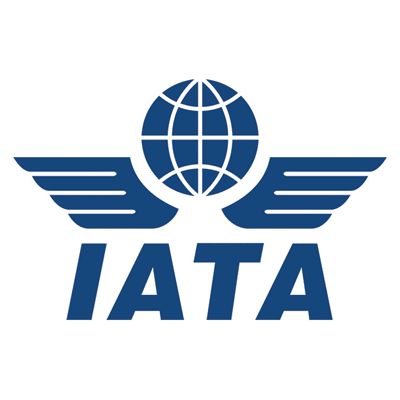Strengthening Russian aviation – IATA celebrates 15 years in Russia
- Like
- Digg
- Del
- Tumblr
- VKontakte
- Buffer
- Love This
- Odnoklassniki
- Meneame
- Blogger
- Amazon
- Yahoo Mail
- Gmail
- AOL
- Newsvine
- HackerNews
- Evernote
- MySpace
- Mail.ru
- Viadeo
- Line
- Comments
- Yummly
- SMS
- Viber
- Telegram
- Subscribe
- Skype
- Facebook Messenger
- Kakao
- LiveJournal
- Yammer
- Edgar
- Fintel
- Mix
- Instapaper
- Copy Link
Posted: 20 June 2011 | IATA | No comments yet
The International Air Transport Association praised the Government of Russia for progress made in aviation…


The International Air Transport Association (IATA) praised the Government of Russia for progress made in aviation and encouraged the Russian Minister of Transport, Igor Levitin, to take further action on three critical issues: (1) ensuring that the Russian fleet complies with standards set by the International Civil Aviation Organization (ICAO), (2) becoming more vocal in opposing Europe’s plans to include international aviation in its emissions trading scheme, and (3) eliminating discriminatory pricing for airport and air navigation service charges.
Giovanni Bisignani, IATA’s Director General and CEO made the calls in a visit to Russian Transport Minister Levitin on the occasion of the 15th year of IATA’s operations in Russia. “We opened our Moscow office in 1996. Over the last 15 years, we have worked side-by-side with the Russian government, our now 9 Russian members and all carriers serving the Russian market to help develop the great potential for Russian aviation based on global standards. We have come a long way. But some issues still remain for Russian aviation to fulfill its great potential,” said Bisignani.
“Aviation plays a critical role in connecting this vast country. It must be safe and efficient. IATA has worked closely with the government and carriers operating in the market to ensure that Russia was well-supported in all aspects of IATA’s global agenda, including the 100% conversion to e-ticketing in 2008 and the requirement for all IATA members to successfully complete the IATA Operational Safety Audit (IOSA),” said Bisignani who signed a Memorandum of Understanding with the Russian Ministry of Transport in 2009 to formalize IATA’s many contributions.
One of IATA’s most important roles in Russia is the operation of IATA’s Billing and Settlement Plan (BSP). In partnership with VTB Bank and with the strong support of the Russian Ministry of Transport, IATA opened a BSP operation in Russia in 2006. Today the system serves 107 airlines and 525 agents with global standard financial processes for annual settlements that now total $2.5 billion. It is based on 100% electronic ticketing (ET) and Bisignani praised Minister Levitin for his leadership in overcoming the regulatory barriers to the introduction of ET in Russia.
To ensure the continued successful development of the Russian air transport sector, Bisignani encouraged Minister Levitin to take action in three areas:
- Improve Safety: IATA praised Russia for progress made on safety. The 13 largest Russian carriers are all on the IOSA Registry demonstrating their dedication to delivering world class safety. “None of the IOSA registered carriers has recorded an accident with loss of life over the last three years. But safety concerns remain with the continued operation of some Russian-built equipment that does not comply with ICAO standards. I urge the Federal Air Transport Authority to ensure compliance of all the Russian fleet with ICAO standards,” said Bisignani.
- European Emissions Trading Scheme (EU ETS): Bisignani encouraged Russia to be more vocal in its opposition to Europe’s plans to include international aviation in the EU ETS. “Europe’s plan could not be more wrong. It contravenes the Chicago Convention which prohibits such taxation and it goes against the Kyoto protocol which gives ICAO the responsibility to manage aviation’s international emissions. And, it is an extra-territorial action that will distort markets. Europe cannot be the sheriff policing emissions outside its political territory. We need a global solution for economic measures through ICAO, which Russia has strongly supported. I encourage Russia to join the growing chorus of countries—including China and the US—which have made their opposition very well known. Europe needs to understand that imposing EU ETS on sovereign states like Russia, China and the US could lead to consequences, not just for its airlines, but for the weak European economy,” said Bisignani.
- Eliminate Discriminatory Infrastructure Charges: IATA urged the elimination of discriminatory pricing policies for airport and air navigation service providers. Currently, foreign carriers are charged more than their Russian domestic counterparts for use of Russia’s aviation infrastructure. “It is time to abandon this practice and focus on cost efficiency with effective economic regulation and equal charges for all airlines,” said Bisignani.
“The future is bright and full of potential. Today Russian aviation handles about 57 million passengers. That’s 10% more than in 2008, but still less than half the 120 million people who flew annually on Aeroflot in Soviet times. As Russian aviation continues to grow, it must further improve safety, defend its interests against unilateral European actions and ensure cost-efficient operations with airport and air navigation service charges that are compliant with ICAO principles. IATA is fully prepared to work hand in hand with the Russian Government on further strengthening Russian aviation,” said Bisignani.
View Giovanni Bisignani’s remarks
Related organisations
International Air Transport Association (IATA), International Civil Aviation Organization (ICAO)













